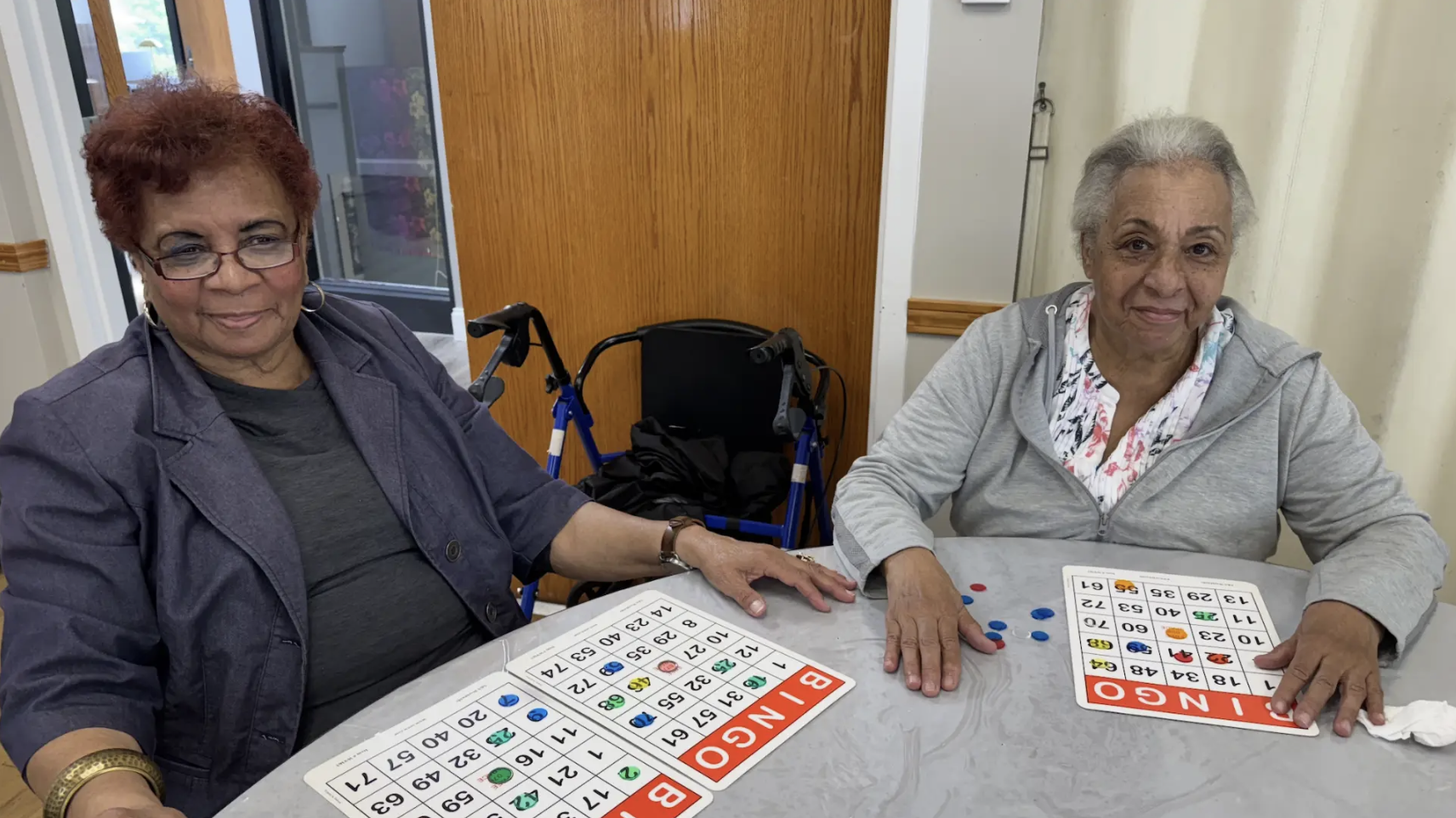Every day, the senior center at the Massachusetts Alliance of Portuguese Speakers in Cambridge offers an assortment of activities. About 40 participants play dominoes, color in coloring books and take exercise and dance classes and eat lunch together every day.
On a recent Monday morning, it was bingo. Maria Assuncao de Sousa, originally from Portugal, wasn’t winning but she was still having fun.
“Not for me, no luck for me,” she said and laughed. Many of the older adults who come to the senior center have been in the U.S. for decades, mainly from Portugal, Brazil and Cape Verde.
The most important benefit of the senior center, aside from the fun and food, is the opportunity to connect with people around a shared culture and language, and combat loneliness, according to Elen Freitas, the center’s coordinator.
“They feel lonely and they don’t do anything once they are home, you know, just watching TV, lying down. And here? No,” she said, greeting each of them with a warm hug. “They [are] obligated to have a social life, talk to others [who are] having the same kind of experience.”
While social isolation among older adults is not a new problem, experts say the COVID pandemic exacerbated the challenge.
Read the full story at GBH News: www.wgbh.org/
Publisher’s Note: GBH and Massachusetts Latino News (MALN) are partners in providing greater visibility and voice to local Hispanic-Latinos communities.
